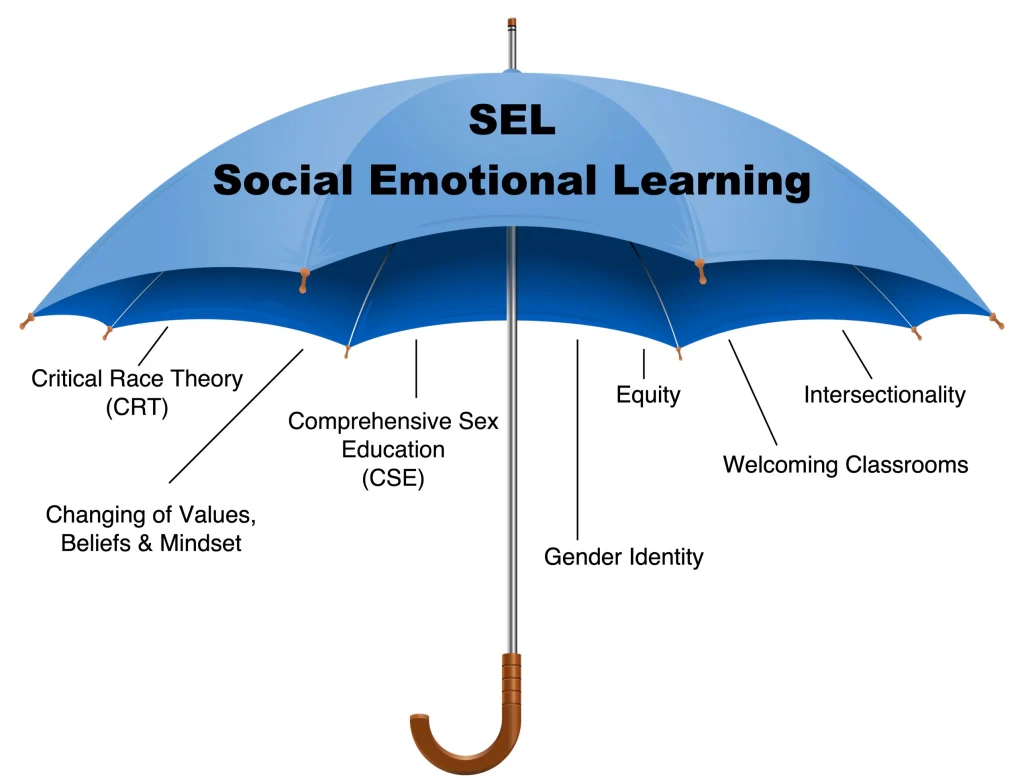Education
Criminalizing Parenthood? Teachers vs. Parents
Who is in charge of the education of children? Parents? Or the public education establishment? What legal rights do parents have?
Increasingly, these questions are being asked by concerned parents as they learn what is being taught in their children’s schools. Theresa Farnan, an educator and mother of ten, lays out for us what we can do to protect our children and exercise the rights we have as the primary educators of our children.
Social Emotional Learning (SEL)

Per Hawaii DOE, Social-emotional learning (SEL) describes the mindsets, skills, attitudes, and feelings that help students succeed in school, career, and life. SEL focuses on how motivation, social connectedness, and self-regulation enable every student to learn and thrive.
But don’t be fooled with the innocuous definition, it is the framework to con parents. It is a “whole family” and “whole community” agenda, with schools being the doorway, also includes using counselors, educators, physicians, and businesses who are also being fooled by the illusion. This veil must be lifted.
What is Comprehensive Sexuality Education (CSE)?
By StopCSE.org
Comprehensive Sexuality Education (CSE) is one of the greatest assaults on the health and innocence of children. This is because unlike traditional sex education, comprehensive sexuality education is highly explicit and promotes promiscuity and high-risk sexual behaviors to children as healthy and normal. CSE programs have an almost obsessive focus on teaching children how to obtain sexual pleasure in various ways. Yet, ironically, comprehensive sexuality education programs are anything but comprehensive as they fail to teach children about all of the emotional, psychological and physical health risks of promiscuous sexual activity. The ultimate goal of CSE is to change the sexual and gender norms of society, which is why CSE could be more accurately called “abortion, promiscuity, and LGBT rights education.” CSE is a “rights-based” approach to sex education and promotes sexual rights to children at the expense of their sexual health. Click here to see numerous examples of many of the harmful components of CSE programs directly from various CSE program manuals.

What is Critical Race Theory?
An outgrowth of the European Marxist school of critical theory, critical race theory is an academic movement which seeks to link racism, race, and power. Unlike the Civil Rights movement, which sought to work within the structures of American democracy, critical race theorists challenge the very foundations of the liberal order, such as rationalism, constitutional law, and legal reasoning. Critical race theorists argue that American social life, political structures, and economic systems are founded upon race, which (in their view) is a social construct.
Systemic racism, in the eyes of critical race theorists, stems from the dominance of race in American life. Critical race theorists and anti-racist advocates argue that, because race is a predominant part of American life, racism itself has become internalized into the American conscience. It is because of this, they argue, that there have been significantly different legal and economic outcomes between different racial groups.
What are the implications of Critical Race Theory?
Advocates of anti-racism and critical race theory use this focus on race to emphasize the importance of identity politics. Movements, such as the wave of “anti-racist” actions at universities and Black Lives Matter, are some ways in which identity politics and critical race theory have captured the nation’s attention. For the political identitarians, simply not being racist is not sufficient. As Boston University professor Ibram X. Kendi writes in his book How to Be an Antiracist, “[Racism] is descriptive, and the only way to undo racism is to consistently identify and describe it—and then dismantle it.”
Self-avowed anti-racists are not only expected to push for equity (i.e. the equality of outcome) in the broader society, but are also asked to find racism in daily life. Robin DiAngelo, author of White Fragility, writes, “The question is not ‘did racism take place?’ but rather, ‘how did racism manifest in this situation?”’ Anti-racists must find these “implicit biases” in all aspects of life, ranging from discussions in the classroom to interactions between colleagues. All of these are fair game.
Survey in Schools 101
Parents have noticed a steep rise in the frequency and intrusive nature of surveys given to their children at school. Schools are increasingly sacrificing time spent on academic subjects to accommodate the time required to administer student surveys. The justification by school officials usually includes something about “diversity, equity, inclusion, belonging, antiracism, social emotional learning and/or school climate.”
Under Federal law, parents have the right to opt their children out of participation in most school surveys. The Pupil Protection Rights Amendment, referred to as the PPRA, guarantees parents the right to review surveys before they are administered to students and to opt their children out of taking them as well.
Learn more here: https://defendinged.org/resources/surveys-101/